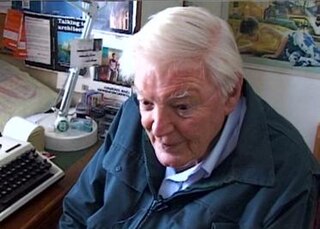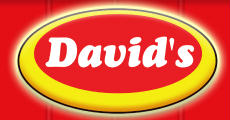Related Research Articles
Anarchism is a political philosophy and movement that is skeptical of all justifications for authority and seeks to abolish the institutions it claims maintain unnecessary coercion and hierarchy, typically including nation-states, and capitalism. Anarchism advocates for the replacement of the state with stateless societies and voluntary free associations. As a historically left-wing movement, this reading of anarchism is placed on the farthest left of the political spectrum, usually described as the libertarian wing of the socialist movement.
Individualist anarchism is the branch of anarchism that emphasizes the individual and their will over external determinants such as groups, society, traditions, and ideological systems. Although usually contrasted with social anarchism, both individualist and social anarchism have influenced each other. Some anarcho-capitalists claim anarcho-capitalism is part of the individualist anarchist tradition, while others disagree and claim individualist anarchism is only part of the socialist movement and part of the libertarian socialist tradition. Mutualism, an economic theory sometimes considered a synthesis of communism and property, has been considered individualist anarchism and other times part of social anarchism. Many anarcho-communists regard themselves as radical individualists, seeing anarcho-communism as the best social system for the realization of individual freedom. Economically, while European individualist anarchists are pluralists who advocate anarchism without adjectives and synthesis anarchism, ranging from anarcho-communist to mutualist economic types, most American individualist anarchists of the 19th century advocated mutualism, a libertarian socialist form of market socialism, or a free-market socialist form of classical economics. Individualist anarchists are opposed to property that violates the entitlement theory of justice, that is, gives privilege due to unjust acquisition or exchange, and thus is exploitative, seeking to "destroy the tyranny of capital, — that is, of property" by mutual credit.

Walmart Inc. is an American multinational retail corporation that operates a chain of hypermarkets, discount department stores, and grocery stores in the United States, headquartered in Bentonville, Arkansas. The company was founded by brothers Sam and James "Bud" Walton in nearby Rogers, Arkansas in 1962 and incorporated under Delaware General Corporation Law on October 31, 1969. It also owns and operates Sam's Club retail warehouses.

Colin Ward was a British anarchist writer and editor. He has been called "one of the greatest anarchist thinkers of the past half century, and a pioneering social historian."

A black bloc is a tactic used by protesters who wear black clothing, ski masks, scarves, sunglasses, motorcycle helmets with padding or other face-concealing and face-protecting items. The clothing is used to conceal wearers' identities and hinder criminal prosecution by making it difficult to distinguish between participants. It is also used to protect their faces and eyes from pepper spray, which is used by police during protests or civil unrest. The tactic also allows the group to appear as one large unified mass. Black bloc participants are often associated with anarchism, anarcho-communism, communism, libertarian socialism and the anti-globalization movement. A variant of this type of protest is the Padded bloc, where following the Tute Bianche movement protesters wear padded clothing to protect against the police.

Carlo Tresca was an Italian-American newspaper editor, orator, and labor organizer and activist who was a leader of the Industrial Workers of the World during the 1910s. He is remembered as a leading public opponent of fascism, Stalinism, and Mafia infiltration of the trade unions for the purposes of labor racketeering and corruption.
CrimethInc., also known as CWC, which stands for either "CrimethInc. Ex-Workers Collective" or "CrimethInc Ex-Workers Ex-Collective", is a decentralized anarchist collective of autonomous cells. CrimethInc. emerged in the mid-1990s, initially as the hardcore zine Inside Front, and began operating as a collective in 1996. It has since published widely read articles and zines for the anarchist movement and distributed posters and books of its own publication.

Anarchism in the United Kingdom initially developed within the religious dissent movement that began after the Protestant Reformation. Anarchism was first seen among the radical republican elements of the English Civil War and following the Stuart Restoration grew within the fringes of radical Whiggery. The Whig politician Edmund Burke was the first to expound anarchist ideas, which developed as a tendency that influenced the political philosophy of William Godwin, who became the first modern proponent of anarchism with the release of his 1793 book Enquiry Concerning Political Justice.

Chiquita Brands International S.à.r.l., formerly known as Chiquita Brands International Inc. and United Fruit Co., is a Swiss-domiciled American producer and distributor of bananas and other produce. The company operates under a number of subsidiary brand names, including the flagship Chiquita brand and Fresh Express salads. Chiquita is the leading distributor of bananas in the United States.
The history of anarchism is ambiguous, primarily due to the ambiguity of anarchism itself. Scholars find it hard to define or agree on what anarchism means, which makes outlining its history difficult. There is a range of views on anarchism and its history. Some feel anarchism is a distinct, well-defined 19th and 20th century movement while others identify anarchist traits long before first civilisations existed.

Anarchism has long had an association with the arts, particularly with visual art, music and literature. This can be dated back to the start of anarchism as a named political concept, and the writings of Pierre-Joseph Proudhon on the French realist painter Gustave Courbet. In an essay on Courbet of 1857 Proudhon had set out a principle for art, which he saw in the work of Courbet, that it should show the real lives of the working classes and the injustices working people face at the hands of the bourgeoisie.
Anarchists have traditionally been skeptical of or vehemently opposed to organized religion. Nevertheless, some anarchists have provided religious interpretations and approaches to anarchism, including the idea that the glorification of the state is a form of sinful idolatry.
In the United States, anarchism began in the mid-19th century and started to grow in influence as it entered the American labor movements, growing an anarcho-communist current as well as gaining notoriety for violent propaganda of the deed and campaigning for diverse social reforms in the early 20th century. By around the start of the 20th century, the heyday of individualist anarchism had passed and anarcho-communism and other social anarchist currents emerged as the dominant anarchist tendency.

The history of Walmart, an American discount department store chain, began in 1950 when businessman Sam Walton purchased a store from Luther E. Harrison in Oklahoma City, Oklahoma, and opened Walton's 5 & 10. The Walmart chain proper was founded in 1962 with a single store in Rogers, expanding inside Oklahoma by 1968 and throughout the rest of the Southern United States by the 1980s, ultimately operating a store in every state of the United States, plus its first stores in Canada, by 1995. The expansion was largely fueled by new store construction, although the chains Mohr-Value and Kuhn's Big K were also acquired.
Anarchism in Japan began to emerge in the late 19th and early 20th centuries, as Western anarchist literature began to be translated into Japanese. It existed throughout the 20th century in various forms, despite repression by the state that became particularly harsh during the two world wars, and it reached its height in the 1920s with organisations such as Kokuren and Zenkoku Jiren.

Alphonse Gallaud de la Pérouse, better known as Zo d'Axa, was a French adventurer, anti-militarist, satirist, journalist, and founder of two of the most legendary French magazines, L'EnDehors and La Feuille. A descendant of the famous French navigator Jean-François de Galaup, comte de Lapérouse, he was one of the most prominent French individualist anarchists at the turn of the 20th century.
The following is a list of terms specific to anarchists. Anarchism is a political and social movement which advocates voluntary association in opposition to authoritarianism and hierarchy.

David's Supermarkets was an independently owned supermarket chain headquartered in Grandview, Texas, United States. Founded in 1964, David's operated 25 stores in North Central Texas and Northeast Texas, concentrated in very small communities not served by other chains.

Queer anarchism, or anarcha-queer, is an anarchist school of thought that advocates anarchism and social revolution as a means of queer liberation and abolition of hierarchies such as homophobia, lesbophobia, transmisogyny, biphobia, transphobia, aphobia, heteronormativity, patriarchy, and the gender binary. People who campaigned for LGBT rights both outside and inside the anarchist and LGBT movements include John Henry Mackay, Lucía Sánchez Saornil, Adolf Brand and Daniel Guérin. Individualist anarchist Adolf Brand published Der Eigene from 1896 to 1932 in Berlin, the first sustained journal dedicated to gay issues.
Anarchism has had a special interest on the issue of education from the works of William Godwin and Max Stirner onwards.
References
- ↑ "The Fine Arts Collection at UC Davis | jan shrem and maria manetti shrem museum of art". manettishremmuseum.ucdavis.edu. 17 November 2015. Retrieved 2019-05-04.
- ↑ "The Collection". dirosaart.org. 3 July 2010. Retrieved 2016-11-03.
- 1 2 Urbina, Ian (2007-12-24). "Anarchists in the Aisles? Stores Provide a Stage". The New York Times. ISSN 0362-4331 . Retrieved 2019-05-04.
- ↑ Frauenfelder, Mark (2007-08-20). "Packard Jennings' "Business Reply Pamphlet"". Boing Boing. Retrieved 2023-02-09.
- ↑ "Mussolini Action Figure shopdropping at Wal-mart - video dailymotion". Dailymotion. Retrieved 2019-05-04.
- ↑ Richards, Kathleen (28 March 2018). "Chiquita Banana Threatens Legal Action Against Emeryville Artist Packard Jennings". East Bay Express. Retrieved 2019-05-04.
- ↑ "Oakland Artist Talks About his Battle with Tech Exec Over Image". KQED. 2015-04-28. Retrieved 2019-05-04.